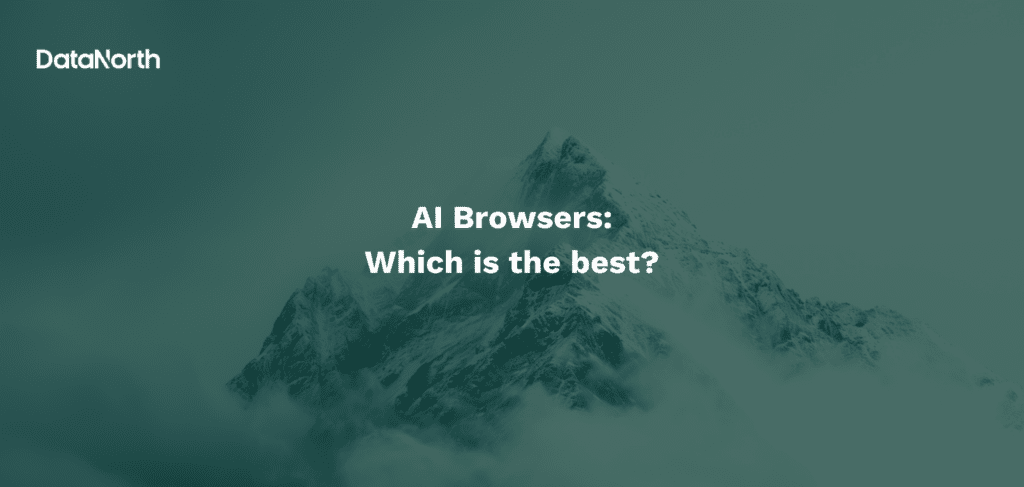The Northern Netherlands is aiming to become a major hub for Artificial Intelligence development!
The Investment and Development Agency for the Northern Netherlands (NOM), in collaboration with SURF and regional partners, is exploring the creation of establishing an AI Factory in Groningen.
This initiative is part of the European Commission’s EuroHPC program, which aims to establish high-performance computing centers across Europe. These centers will provide the necessary infrastructure to develop secure datasets and support data processors, ensuring AI applications are ethical and globally competitive.
The Dutch government has already shown support for this project, with a parliamentary motion advocating for an AI Factory in the region. Groningen has emerged as a top candidate, with potential funding coming from European sources and contributions from national and regional governments.
To gain deeper insights into this initiative, we spoke with Frank Drijfhout, who has worked on EU projects focused on data spaces and developing technology for data sharing under governance frameworks. He was open to share his perspective on the challenges and opportunities ahead.
He emphasized the project is still in its early stages:
“It’s about finding partners, agreement on who does what and what exactly do we do, how do we do it”
What is an AI Factory?
Before we dive deep into why this factory will be highly important and useful, we need to understand what it is. Contrary to what the term might suggest, an AI Factory is not a manufacturing plant for robots. Instead, it is a facility designed to support artificial intelligence development and research.
An AI factory has the following elements:
Expertise Center
Collaboration with research departments at companies, universities and AI specialists, allowing organizations to move faster and continue to improve their AI strategies.
Supercomputer for AI
It is made up of strong computer networks, effective data centers, and specialized support staff to enhance AI advancements.
Reliable Datasets
The facility offers access to extensive and trustworthy European data sources that comply with public values like sustainability, transparency and cooperation.
Why Groningen?
Groningen offers unique advantages that make it an attractive location for a project like this:
Strong AI & ICT Ecosystem
Groningen already has a strong foundation in AI and digital technology. The city is home to top academic institutions, including The University of Groningen (RUG) and the University Medical Center Groningen (UMCG). On top of that, governmental organizations and companies are working together thanks to initiatives like Health Data Valley and IT Hub Noord-Nederland, along with companies like Spheers.ai and Astron, provide a strong foundation for AI research and innovation.
Energy & Infrastructure
AI computing requires significant energy resources, and unlike other parts of the Netherlands, Groningen has the power capacity to support such demands. Moreover, Groningen is already a leader in green energy solutions, including renewable energy and sustainable computing. The facility can align with green AI initiatives which will ensure energy efficient computing and reduce the environmental impact of AI.
Impact & Opportunities
The establishment of an AI Factory in Groningen would have a significant impact and several benefits:
1. Retaining & Attracting Talent
One of the key challenges in the Northern Netherlands is talent retention. Many skilled professionals leave the region for international opportunities after completing their studies. An AI Factory could create attractive opportunities, which may attract new people and keep experts in the area.
The specialist highlighted the importance of keeping students in the North of the Netherlands:
“I think that’s important for also binding students to the northern region instead of moving to Amsterdam or Rotterdam or the Hague”
2. Business Growth & Technological Advancements
Small and medium sized businesses (SMEs) find it difficult to obtain advanced AI tools due to high costs and technical complexity. An AI factory will create high-quality jobs, attract innovative AI companies and support local businesses in their digital transformation.
This will particularly benefit sectors such as healthcare, logistics, energy and agriculture, where AI can improve efficiency, reduce costs and create new business opportunities.
It also has the potential to enhance government services by smoothing policymaking, improving public service delivery and detecting fraud. Additionally, the AI Factory will contribute to Europe’s strategic autonomy by reducing reliance on foreign AI solutions and ensuring compliance with ethical AI standards.
3. Strategic Autonomy:
By establishing an AI factory in Groningen, it reduces the dependence on foreign tech companies. Currently, many European businesses and governments rely on non European cloud providers, raising concerns about data security, sovereignty and compliance with European regulations.
This facility would play an important role in ensuring that AI development adheres to European ethical and legal standards.
Possible Challenges
Although there are quite a few opportunities, the initiative faces some challenges that can be categorized as follows:
Stakeholders & Responsibility
Identifying all relevant stakeholders and establishing a clear understanding of their roles and responsibilities is crucial. A key challenge is the absence of a designated party or individuals responsible for driving the project forward, engaging with various stakeholders (politicians, institutes, companies, society), and ensuring it aligns with common interest. Without clarity on who is ultimately accountable, decision making becomes difficult.
Sustainability
Establishing a clear and transparent governance structure for the AI factory is vital to ensure fair access and decision making regarding project selection and resource allocation.
Ensuring the long term sustainability and value creation of the AI Factory is a concern. If it does not lead to the development of practical AI applications and value creation services, it could be a misallocation of resources
Defining Moment for Groningen and Europe
While there is still uncertainty surrounding the project’s future and the challenges it may face, its potential impact cannot be overlooked. This initiative is not just about strengthening the local economy, it is a crucial step toward ensuring AI is developed and used ethically and sustainably across Europe.
The expert reinforces this by stating:
“I think it is a very significant project in its size and might influence the way the Netherlands and Europe position themselves on the global playing field in the AI ecosystem. And that’s very important. “
With the final application to the European Commission due in May 2025, Groningen has a unique opportunity to position itself as a leading AI hub. If successful, the city could soon become one of the most influential centers for AI research and development in Europe.





